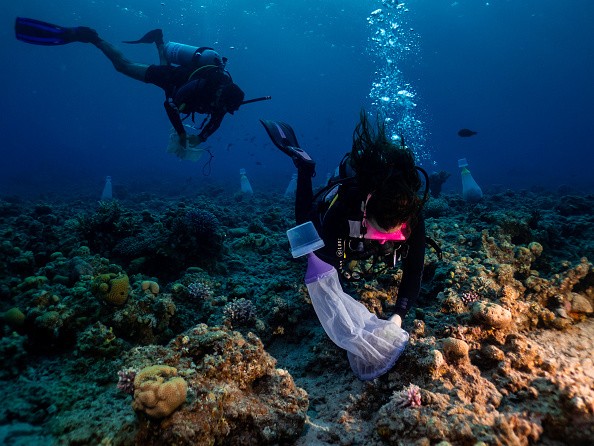Marine heat waves and heat stress have affected many ocean corals, and marine biodiversity could also suffer from the impact on the coral reefs.
However, recent research showed that the corals in the Palau Rock Islands were amazingly heat-resistant.
Global warming and climate change have contributed to the widespread concerns about ocean warming, coral bleaching and heat stress.

Human activities also contribute to coral system damage. According to the United States Environmental Protection Agency (EPA), human-caused pollution and activities have helped the destruction of corals in the ocean, including illegal fishing, coral harvesting and coastal development.
Scientists and researchers have raised concerns over the potential impact on the marine environment, especially the food sources of aquatic animals.
Ultimately, rising ocean temperatures contribute to the threat to corals.
The EPA added that it could affect many corals, losing the important algae they need.
In addition, ocean acidity reduces the nutrients that corals require for carbonate structure.
Palau's resistant coral reefs
The research can also be read on the Phys.org website.
Part of the study is to research the Super Reefs initiative that could help understand more about heat-tolerant corals.
According to the report, the people in Palau respect and appreciate the environment. The research would help people to continue the marine conservation of important heat-resistant corals.
According to OCEANA, the lobe coral (coral species Porites lobata) and the Rock Islands could thrive in higher temperatures unlike other corals.
As mentioned, the researchers emphasized that ocean warming could impact the important single-celled algae, which is considered sensitive to high and extreme temperatures.
As a result, researchers have been on the quest to uncover new species of corals that could be tolerant to heat stress or marine heat waves.
In the western tropical Pacific, the study discovered in Palau that there are corals resistant to extreme heat.
The report explained that they looked into how the corals in Palau managed to live with the heat and how larvae could survive.
Although the area is said to have higher temperatures, the researchers were amazed that the corals there showed to maintain less bleaching.
Protecting corals
According to the study published in Common Biology, the corals in the region shower heat and thermal tolerance, which could still survive in extreme climate conditions.
As a result, the protection and conservation management of corals are important, especially in their natural breeding grounds, like in Palau.
According to the study's co-author, Anne Cohen explained that protecting communities with reported thermal tolerance and bleaching-resistant is crucial, especially from coastal development and other illegal fishing practices.
The idea is Part of the Super Reefs Initiative.
Cohen is also a scientist at the Woods Hole Oceanographic Institution.
The researchers explained that the millions of larvae could be helpful as they flow or travel in ocean currents, allowing the coral system to repopulate.
According to the report, the research is with the initiative of the WHOI, Stanford University and the Nature Conservancy.
Related Article : Great Barrier Reef Suffers from Threat of Climate Crisis Effects; Scientists Suggest Immediate Action
For more similar stories, don't forget to follow Nature World News.
© 2026 NatureWorldNews.com All rights reserved. Do not reproduce without permission.





